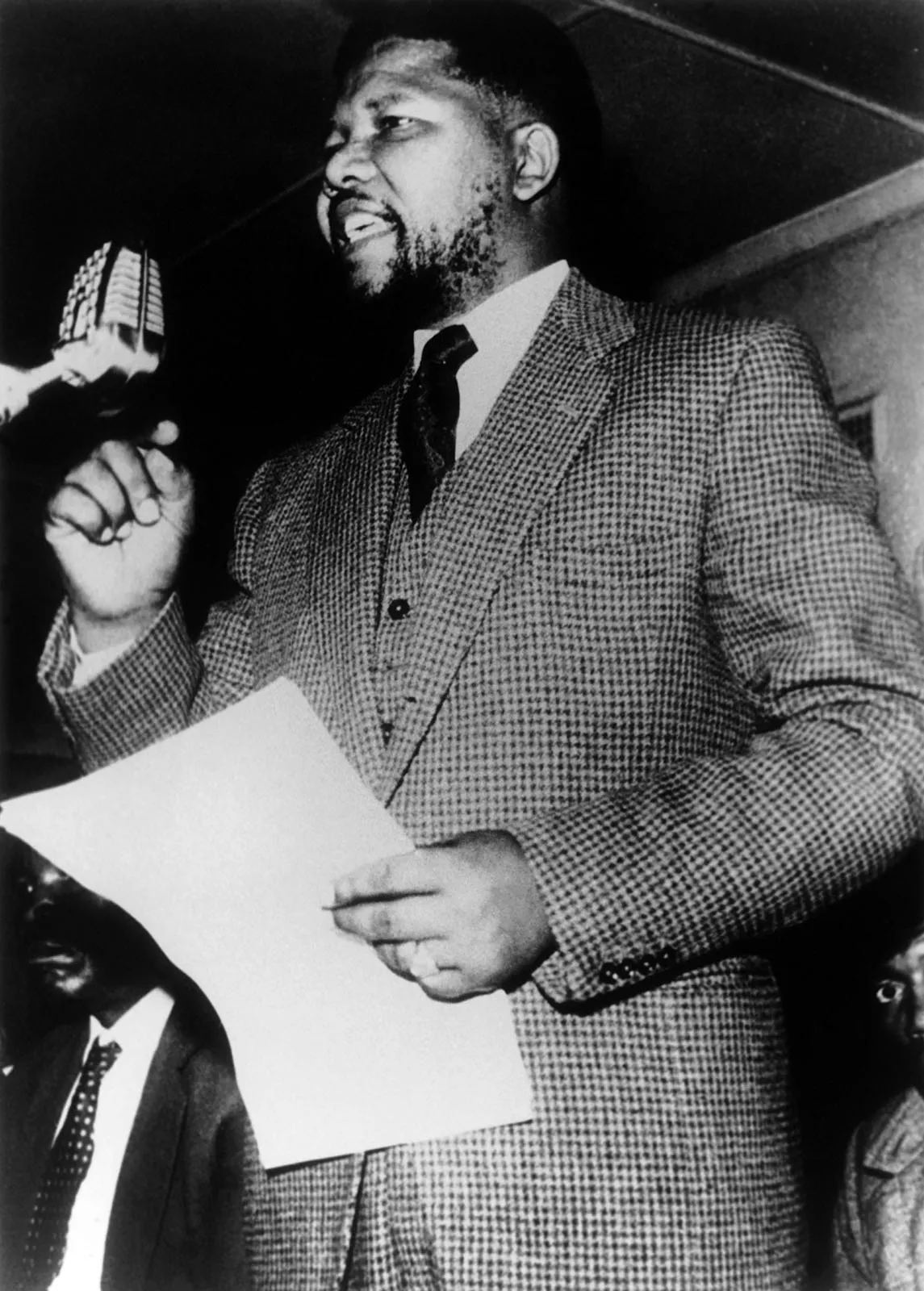Sixty-three years ago today, Nelson Rolihlahla Mandela, a tall man in a dark suit, stood in a heavily guarded courtroom in Pretoria. The charges against him were leaving the country illegally and inciting workers to strike. The sentence: five years in prison. To the apartheid regime, he was a criminal. To millions of South Africans, he was a beacon of hope.
Earlier that year, Mandela had secretly left South Africa to seek support for the African National Congress (ANC), traveling to several African nations to rally against apartheid. Upon his return, he was captured and brought to trial. Even as the courtroom’s gavel sealed his fate, Mandela’s dignity and determination were unshaken. “The struggle is my life,” he declared — words that would echo through decades of hardship.
Though officially sentenced to five years, Mandela would spend 27 years in prison, first at Pretoria Local Prison, then at Robben Island, Pollsmoor, and finally Victor Verster. He endured isolation, hard labor, and systematic humiliation, yet his spirit never broke. What the apartheid regime intended to silence only amplified his message, inspiring resistance across South Africa and the world.
Mandela’s imprisonment became the cornerstone of his “long walk to freedom.” It was during these years that he refined his vision of a South Africa built on equality, justice, and reconciliation. When he was finally released on February 11, 1990, Mandela did not seek revenge. Instead, he extended a hand of peace, emphasizing forgiveness as the foundation for a united nation.
From a prisoner to a president
In 1994, he became South Africa’s first Black president, marking the end of apartheid and the beginning of a democratic, multiracial South Africa. His presidency prioritized national healing, education, and equality. Under his leadership, South Africa established the Truth and Reconciliation Commission, which allowed victims and perpetrators of apartheid-era crimes to speak openly, a process that turned pain into dialogue and helped prevent civil war.

Mandela’s influence reached far beyond politics. He championed education as “the most powerful weapon which you can use to change the world.” He advocated for global peace, HIV/AIDS awareness, and human rights. After leaving office in 1999, he dedicated his life to humanitarian causes through the Nelson Mandela Foundation, inspiring future generations to lead with compassion and justice.
On December 5, 2013, the world mourned as Mandela passed away peacefully at his home in Johannesburg at the age of 95. Leaders and citizens from every corner of the globe united in grief and remembrance. His funeral became one of the largest gatherings of global figures in history — a reflection of the love and respect he had earned across nations.
Today, October 25, reminds us not just of the day a man was imprisoned, but of the birth of a legacy that continues to inspire generations. Nelson Mandela showed that no prison is strong enough to contain the human spirit and that true strength lies in forgiveness, unity, and perseverance. His life stands as a testament that justice and peace can prevail over hatred and oppression, and that the courage of one individual can indeed change the course of history.





